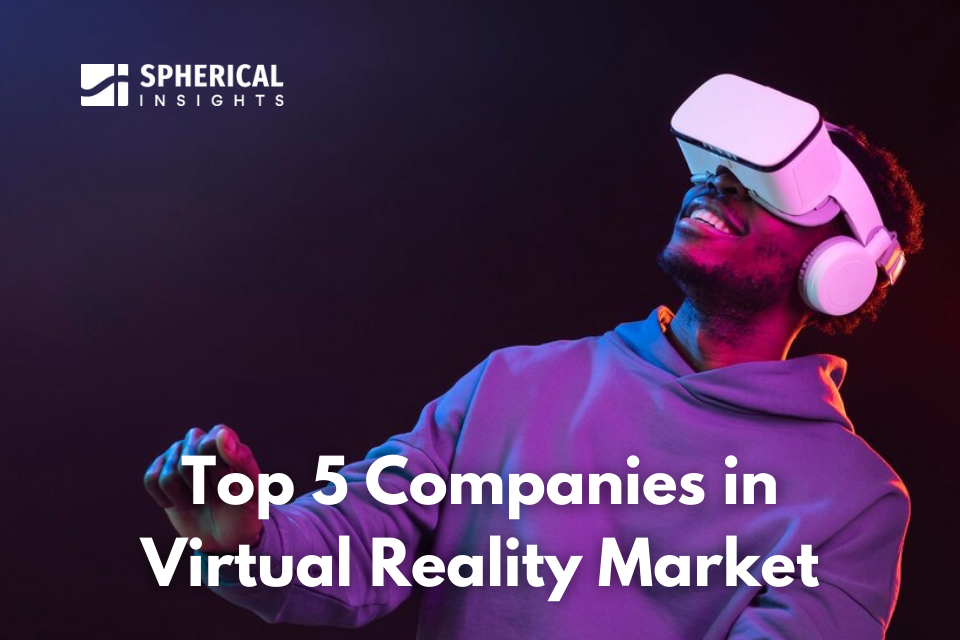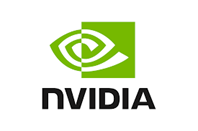What is Virtual Reality? A computer-generated simulation of a three-dimensional object or setting that can be engaged with in a way that appears real or tangible is known as virtual reality, or virtual environments (VE). It is a computer-generated environment that is shown to the audience in a way that makes it appear and feel lifelike. In a standard VR format, a user sees animated images of a simulated world while donning headgear with a stereoscopic screen. Additionally, one of the main factors propelling the expansion of the virtual reality market is the growing use of head-mounted displays, or HMDs, in the gaming and entertainment industry. The game business has experienced a technological revolution since the advent of VR and 3D technologies.  Growth and Opportunities in the Virtual Reality Market 1. Expanding opportunities in the healthcare sector to support market growth VR applications are expected to cause major disruptions in the healthcare industry, according to the experts' assessment. The technology has shown promise in improving medical training, patient care systems, healthcare provisions, and planned surgeries. The demand in healthcare is anticipated to increase as a result of its ability to imitate real-world environments. Assisted robotic virtual reality to help medical professionals during procedures. Additionally, surgical training is provided to enhance the necessary abilities. For instance, in February 2022, Memic Innovative Surgery and VirtaMed partnered to introduce Memic's Hominis surgical virtual reality technology for surgeon training.   2. Increasing virtual games and multimedia experiences Gamers are searching for more immersive and realistic settings, which is driving VR adoption because it offers an unrivaled level of interaction. Big gaming firms are introducing VR technology into their platforms, attracting both casual and dedicated players. Beyond gaming, the capacity of VR to recreate real-world experiences is aiding the entertainment industries, including live sports, concerts, and movies. People are growing more tech-savvy and seeking high-quality immersive content, fueling the demand for VR solutions. For instance, in September 2024, Rezzil announced the imminent release of "Premier League Player," a Premier League VR game that is fully licensed for Meta Quest devices alone.   Global Expansion of the Virtual Reality Market The global virtual reality market size was valued at USD 24.40 billion in 2023 and is projected to USD 259.24 billion by 2033, exhibiting a CAGR of 26.66% during the forecast period 2023-2033. The top companies in the global virtual reality market include Meta Platforms Inc. (formerly Facebook), Microsoft Corporation, NVIDIA Corp., Unity Technologies, HTC (Oculus VR), Samsung Electronics, Google LLC, Sony Group Corporation, Qualcomm, and Magic Leap.  Emerging Trends in the Virtual Reality Industry 1. The increasing adoption of the Metaverse In a virtual environment, the metaverse is all about establishing a feeling of presence. With immersive experiences that make it difficult to distinguish between the real world and the virtual one, virtual reality (VR) technology is at the vanguard of the metaverse. The user's vision of the outer world is replaced with a 360-degree view of virtual worlds through VR headsets like Meta's Oculus. This technology has already made a substantial contribution to a number of fields, such as customer service, healthcare, and education. Virtual reality (VR) has been demonstrated to enhance learning and boost accuracy in medical practice, making it a useful tool for teaching and training. For instance, in April 2024, the Metaverse Experience Center (MEC) was established in Noida, India, by Metaverse911 (India), a metaverse research and advising organization. Industry leaders will have a unique opportunity to discover and experience the newest advancements in immersive technologies, such as extended reality, at the MEC, which is intended to be the center for exhibiting state-of-the-art AR, VR, Mixed Reality (MR), Digital Twin, and Metaverse solutions.  2. Constant advancements in 5G technology Virtual reality technology adoption has been increasing in both personal and professional contexts. By opening the door for an efficient allocation of processing power, 5G technology is anticipated to alleviate some of these issues. The higher performance of 5G makes connections quicker and more dependable, which improves the VR application user experience. Higher data transfer rates and reduced latency make VR experiences more responsive, while improved visuals enable real-time streaming of complex 3D graphics and higher-resolution content. 5G's capabilities enable new VR use cases, including edge computing and real-time cloud rendering, allowing for sophisticated and data-intensive applications like smart city simulations and virtual tourism.  List of Key Companies in the Virtual Reality Industry  Top 5 Players in the Virtual Reality Industry 1. Meta Platforms, Inc Headquarters: Menlo Park, California The American international technological company Meta Platforms, Inc., formerly known as Facebook, Inc. is headquartered in Menlo Park, California and operates under the Meta brand. In addition to other goods and services, the business owns and runs Facebook, Instagram, Threads, and WhatsApp.  In 2014, Meta acquired Oculus VR to enter the virtual reality business, and in 2016, it unveiled the Oculus Rift, its first VR headset. In 2019, the business released the standalone Meta Quest VR headgear, which offers wireless VR experiences without the need for external sensors. The upgraded Meta Quest 2 followed. Horizon Worlds is a social VR platform created by Meta that allows users to collaborate to create and explore virtual worlds. Furthermore, Meta is developing mixed reality technologies, which combine aspects of virtual reality and augmented reality. For example, Meta Quest Pro incorporates facial and eye tracking. Developers can create mixed reality apps and experiences with Meta Quest devices, which are powered by the Meta Horizon OS.  2. Microsoft Corporation Headquarters: Redmond, Washington Microsoft Corporation is a technological firm and global corporation based in Redmond, Washington, in the United States. The Microsoft 365 suite of workplace apps, the Edge web browser, the Azure cloud computing system, and the Windows operating system family are among its most well-known software offerings. Additionally, the HoloLens 2 is a cutting-edge mixed-reality headset built for business use. It provides hands-free, holographic experiences that boost productivity across a range of sectors, including manufacturing, healthcare, and education. With its support for virtual reality headsets and accessories, Windows Mixed Reality offers engaging experiences for social interactions, business, and gaming. With the help of Microsoft Mesh, a mixed reality platform, users may engage in real-time interactions with digital information and one another, independent of where they are physically located. To go along with its current mixed reality products, Microsoft is creating a new VR headgear that is geared for content consumption, such as games and movies.  3. Nvidia Corporation Headquarters: Santa Clara, California The American multinational corporation and technology company Nvidia Corporation was founded in Delaware and has its headquarters in Santa Clara, California. It is a software and fabless firm that creates and provides system-on-a-chip (SoC) units for the mobile computation and automobile markets, graphics processor units (GPUs), and application programming interfaces (APIs) for data science and outstanding performance computing. Software and hardware for artificial intelligence (AI) are also dominated by Nvidia. NVIDIA Corporation is a prominent technological business that, due to its cutting-edge graphics processing units (GPUs) and creative solutions, has significantly impacted the virtual reality (VR) sector. Top VR games are powered by their GeForce RTX series GPUs, which also work with popular VR headsets like the HTC Vive Pro, Oculus Quest 2, and Valve Index. The VRWorks SDK from NVIDIA offers technology and tools to improve virtual reality experiences, such as touch interactions, realistic graphics, sound, and simulated surroundings. High-quality, immersive experiences on untethered devices are made possible by NVIDIA CloudXR, which allows streaming of VR and AR apps via 5G and Wi-Fi networks.  4. Oculus VR Headquarters: Menlo Park, California Oculus VR is a virtual reality technology company that works in the software development and consumer electronics industries. Along with a platform for VR content like games, apps, and experiences, the company sells a variety of VR gear, such as headgear and controllers. Oculus VR is a prominent player in the virtual reality (VR) industry and is currently a part of Meta Platforms Inc. (previously Facebook). Oculus VR, which was founded in 2012 by Palmer Luckey, Brendan Iribe, Michael Antonov, and Nate Mitchell, created the Oculus Rift, one of the first contemporary virtual reality gaming headsets. An important turning point in VR technology was reached in 2014 when Facebook paid $2 billion to acquire the firm. Since then, Oculus VR has added the standalone Meta Quest headsets, which provide cordless VR experiences, and the social VR platform Horizon Worlds to its lineup.  5. Sony Group Corporation Headquarters: Tokyo, Japan. The Sony Group Corporation produces, sells, and offers related services for electronics. The company manufactures mobile phones, cameras, televisions, and audio and video equipment. gaming accessories, and more. The Sony Group also produces video games, films, music, and other types of media. A prominent conglomerate, Sony Group Corporation has significantly impacted the virtual reality (VR) sector with its PlayStation VR2 and other cutting-edge technology. A part of the Sony Group, Sony Interactive Entertainment is in charge of the PlayStation brand and line of goods and services. Since 1994, the firm has been a leader in interactive and digital entertainment, having introduced the first PlayStation in Japan. The PlayStation VR2, which was released worldwide, uses the PlayStation 5 platform to provide immersive virtual reality gaming experiences. Sony keeps developing VR technology to give consumers immersive, excellent virtual experiences.  Conclusion The market for virtual reality (VR) is expanding quickly across several industries, including gaming, entertainment, and healthcare. With its ability to create realistic surroundings, virtual reality technology offers a variety of innovative options, such as interactive gaming and surgical simulations. The acceptance of VR is being further fueled by the development of the metaverse and the growth of 5G technology, which improves connectivity and the caliber of virtual experiences.  About the Spherical Insights & Consulting Spherical Insights & Consulting is a market research and consulting firm which provides actionable market research study, quantitative forecasting and trends analysis provides forward-looking insight especially designed for decision makers and aids ROI. Which is catering to different industry such as financial sectors, industrial sectors, government organizations, universities, non-profits and corporations. The company's mission is to work with businesses to achieve business objectives and maintain strategic improvements.  CONTACT US: For More Information on Your Target Market, Please Contact Us Below:    Phone: +1 303 800 4326 (the U.S.) Phone: +91 90289 24100 (APAC) Email: , Contact Us: contact-us Follow Us: LinkedIn | Facebook | Twitter Single Type F Wall Outlet For Power,Single Type F Wall Outlet Dimensions,Single Type F Wall Outlet Black And White,Single Type F Wall Outlet Black Yang Guang Auli Electronic Appliances Co., Ltd. , https://www.ygpowerstrips.com




